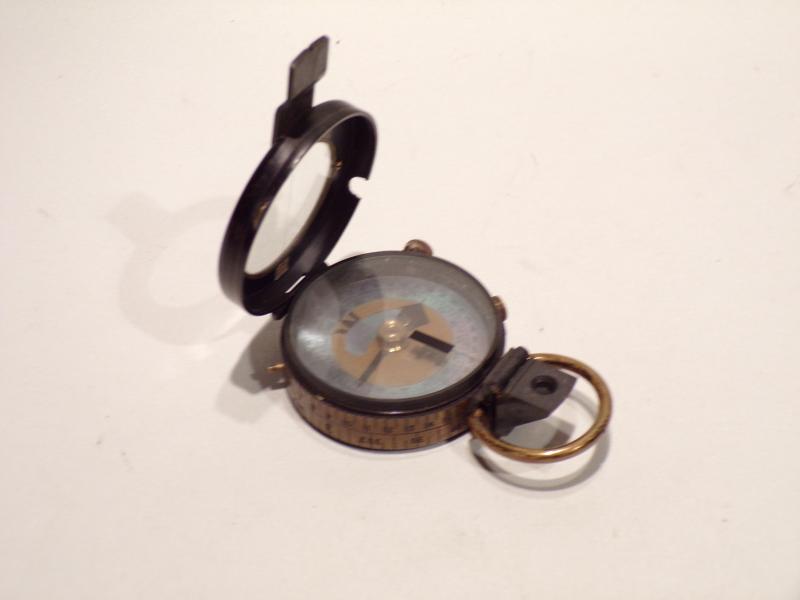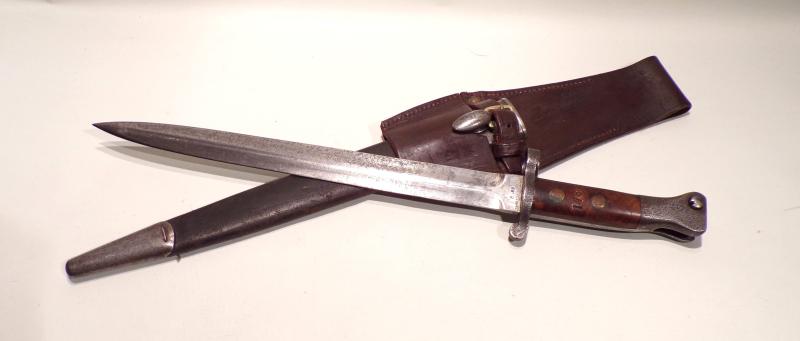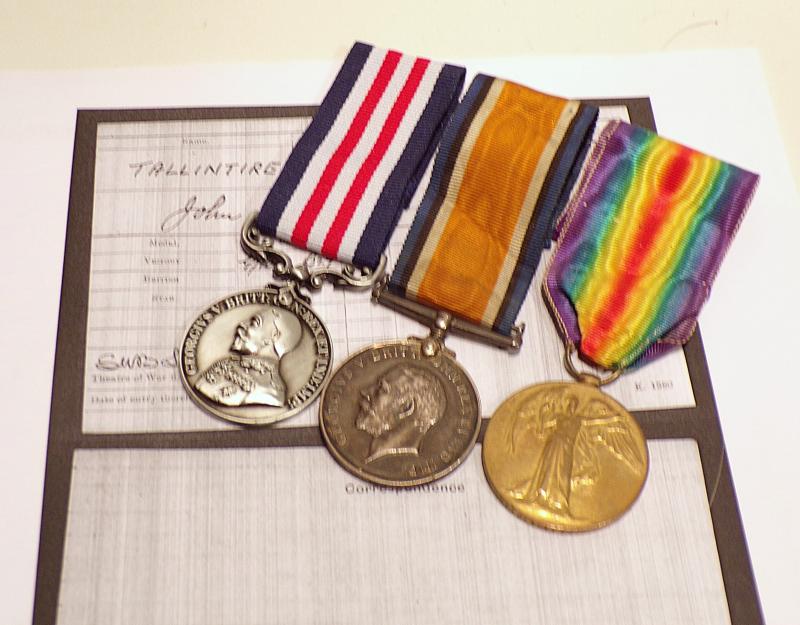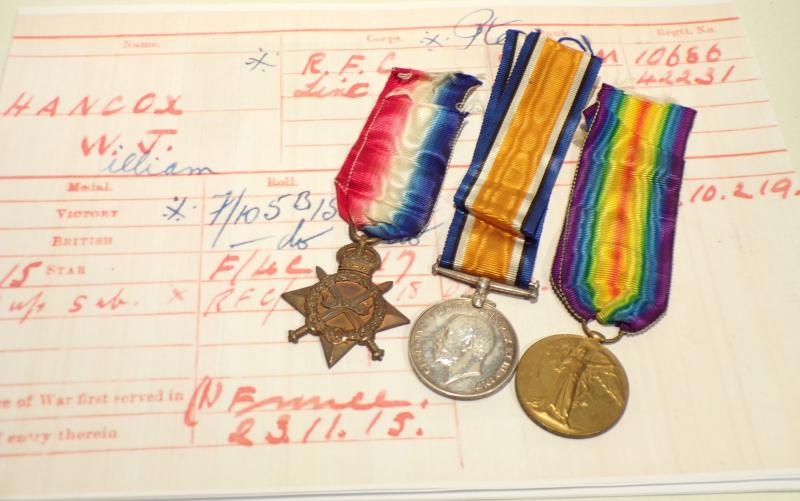Victorian 1845 Pattern Infantry Officers Sword
A Victorian Infantry Officers Sword with gilt brass hilt with folding guard, so post 1850. A ray skin grip bound with twisted and two single strand wire. The guard has a light depression in the frame, which is seen a lot with type of sword, probably a result of battle damage. A good slightly curved single fullered blade now with a dark tone, I think this commonly caused by greasing the blade w... read more
245.00 GBP
WW1 Officers Field Compass – Named to MC Winner.
A very good WW1 era Officers compass in original leather case.
The underside marked F Baker & Son London. It has also been engraved ‘R K Taylor Nightingale 4th Bn Lancs Fusiliers’.
This refers to Ralph Kennith Taylor Nightingale who got his commission as 2nd Lieutenant in the 4th battalion Lancashire Fusiliers in 1999. He entered the war in 1914 at the rank of Captain of the 2nd ... read more
145.00 GBP
WW1 1914/15 Star Trio to Stubbs RNR & 14/15 Star to Son.
WW1 1914/15 star, British war and victory medal all correctly named to WSA-1839 David Stubbs Skipper Royal Navy Reserve and single 1914/15 star correctly named to ES-3879 Ernest Robbert Stubbs Engineer Royal Navy Reserve.
David Stubbs was born Corton Suffolk 1861. He was brought up by his widowed mother Sarah who lost her husband James at sea before David was nine years old. Like the res... read more
140.00 GBP
Scarce Early Victorian Pipe Back Light Cavalry Sword.
The 1822 pattern light cavalry sword with pipe back and long curved blade, steel hilt with a stepped pommel and ray skin grip bound with twisted wire. It still has traces of etching on the blade showing Queen Victoria’s royal cypher and the makers details of Linney & Son. 23 Regent Street, London.
The plated steel scabbard is missing but it comes in very nice untouched condition with sig... read more
QSA + 5 to Tpr Rowels 58th Imperial Yeomanry
Queens South Africa medal correctly named to 26288 Trooper Adolphus William Rowles of the 58th (Berkshire) Company 15th battalion Imperial Yeomanry with clasps Cape Colony, Orange Free State, Tranvaal, South Africa 1901 and South Africa 1902. All clasps correctly attached to suspender.
Adolphus William Rowles was born on 22nd June 1880 in Henley Oxfordshire. Adolphus served with the Oxfo... read more
245.00 GBP
Boer War Lee Metford MkII Bayonet by Sanderson with Frog.
The scarcer Mk II bayonet and not the MK I type II which is often called the MkII, the true MkII unique having no oil hole in the grip. This is a lovely example by with the date mark of august 1899 by Sanderson of Sheffield. It comes in very good order with some light pitting to the pommel and guard, and the blade is good with no rusting just light staining. It comes in its original leather and... read more
225.00 GBP
WW1 Medal Pair to Tallintire Argyle / Seaforth Highlanders MM Winner
A very interesting British war and Victory medal pair correctly named to 25451 Private John Tallintire Argyle & Sutherland Highlanders.
John Tallintire was born in Glasgow around 1895 and when war broke out, he enlisted into the 1/6th (Renfrewshire) Battalion Argyle & Sutherland Highlanders and landed in France during April / May 1915. With this regiment he must have seen action with the... read more
180.00 GBP
RAF Mk 1A Helicopter Pilots Helmet.
The Mk1 RAF Pilots helmet in bright yellow for Helicopter / Air rescue pilots and crew. This one is dated 1967 with sunscreen and comes with its original cloth inner flying helmet dated 81, communications lead, throat mike and original cloth storage bag. The whole set is in excellent condition and apart from the odd little scuff to the outside, it looks little used. Size No 3 regular. read more
2nd Afghan War Medal to Norfolk Reg Ent Kabul Clasp.
A good Victorian 2nd Afghan war medal correctly named to 2149 Private J Smith 2nd 9th Regiment of Foot (East Norfolk regiment) J Smith is entitled to the Kabul clasp. The 2nd Norfolk’s saw active service during the Second Anglo-Afghan War (1878–80). The battalion, part of the British Army's expansion, was in India before participating in the conflict, taking part in the action in Kabul in 1879.... read more
175.00 GBP
WW1 Medal Trio to Hancox RFC & Lincs Reg.
A really interesting 1914 /15. British war and victory medal correctly named to 10686 2. AM Willaiam J Hancox Royal Flying Corps.
A scarce WW1 trio named to Royal Flying Corps. William Hancox born in Bulsall Heath Birmingham 1890. Before the war he was employed as a general labourer and enlisted very early on going into the 18th Hussars. This obviously didn’t suit him as he purchased his... read more
185.00 GBP











